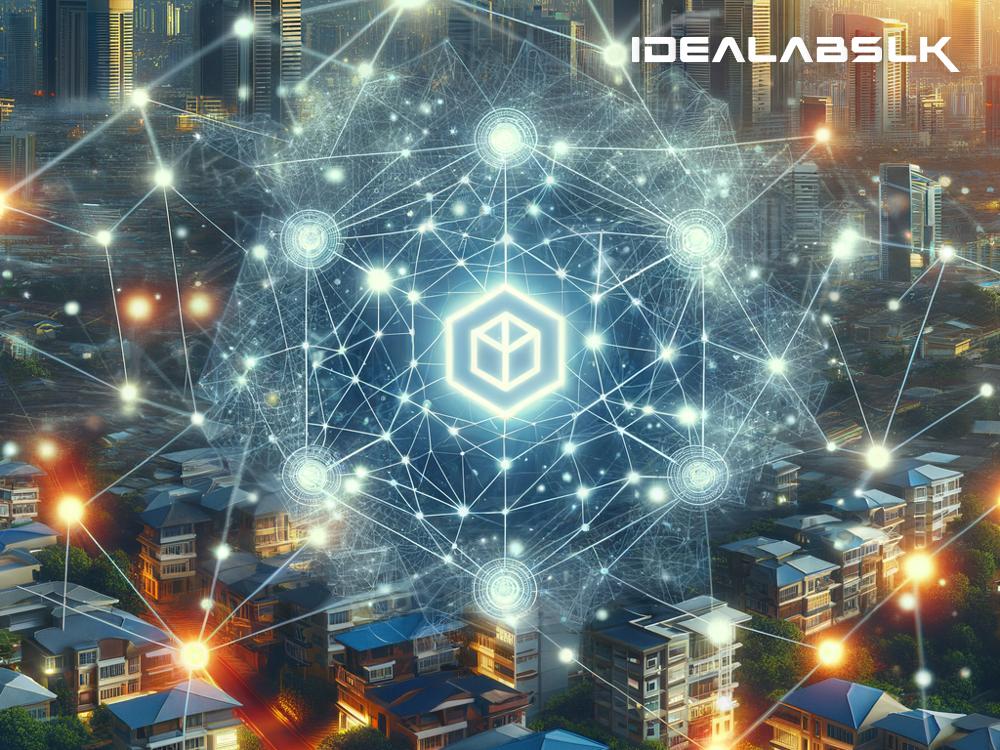Blockchain and Real Estate: Unlocking New Possibilities with Smart Contracts
In recent years, the real estate industry has seen a considerable transformation, thanks to the innovative integration of blockchain technology, particularly through the use of smart contracts. For many, the concept of blockchain might conjure images of cryptocurrencies like Bitcoin and Ethereum, but its potential extends far beyond just digital currencies. At its core, blockchain is revolutionizing how property transactions are conducted, making them more secure, transparent, and efficient. Let's delve into how this technology is reshaping the real estate sector.
What is Blockchain, Anyway?
Imagine a digital ledger that's accessible by multiple parties but is virtually tamper-proof. That's blockchain for you. Each "block" of data is secured and bound to the next, creating a "chain" of unalterable records. This foundational technology not only powers cryptocurrencies but can also securely and transparently record any transactions, including those in real estate.
Enter Smart Contracts
One of the most exciting applications of blockchain in real estate is the use of smart contracts. These aren't contracts in the traditional sense but are self-executing contracts with the terms of the agreement directly written into lines of code. The beauty of these contracts lies in their ability to automatically enforce and execute the terms of an agreement once predetermined conditions are met, without the need for intermediaries.
The Impact on Real Estate Transactions
Simplifying Transactions
Traditionally, property transactions are anything but straightforward. They involve a series of steps, including listings, offers, inspections, negotiations, and finally, the closing process, which can be both time-consuming and expensive. Smart contracts streamline this process by automating many of these steps, significantly reducing the time and cost associated with them.
Enhancing Security and Transparency
The secure nature of blockchain and its decentralized system means that once a transaction is recorded, it cannot be altered or deleted. This reduces the risk of fraud, ensuring that property records are accurate and tamper-proof. Moreover, since all parties have access to the transaction records, it fosters transparency and trust among them.
Cutting Out the Middlemen
One of the most significant impacts of smart contracts in real estate is the potential to bypass intermediaries such as brokers, legal teams, and banks. Since smart contracts can execute transactions automatically, many of the services traditionally provided by these intermediaries may become redundant, potentially saving buyers and sellers thousands in fees.
Real-World Applications
Tokenization
Tokenization is the process of converting rights to an asset into a digital token on a blockchain. In real estate, this could mean owning a "token" that represents a share of ownership in a property. This concept opens up the possibility for easier property investment and ownership transfer, allowing for more fractional ownership and democratizing access to real estate investment.
International Property Deals
Buying property in another country can be a daunting process, fraught with legal challenges and excessive paperwork. Smart contracts can ease this by providing a standardized, secure, and enforceable framework that transcends borders, simplifying international real estate deals.
Challenges and Considerations
Despite its potential, the integration of blockchain and smart contracts in real estate is not without its challenges. Regulatory hurdles, the digital divide, and the need for a significant cultural shift in how transactions are conducted are among the obstacles that need to be addressed. Furthermore, there's a learning curve involved in understanding and trusting this new technology, both for professionals in the real estate sector and for buyers and sellers.
Looking Ahead
We're at the cusp of a major shift in how property transactions are conducted. As blockchain technology and smart contracts continue to mature, their potential to streamline, secure, and democratize real estate deals is immense. However, it will require careful navigation of the challenges ahead and a concerted effort to embrace this new technology.
In conclusion, blockchain and smart contracts hold the promise of transforming the real estate industry by making transactions simpler, faster, cheaper, and more secure. As we venture further into this digital age, it's worth watching how this technology unfolds and reshapes the landscape of real estate transactions.

